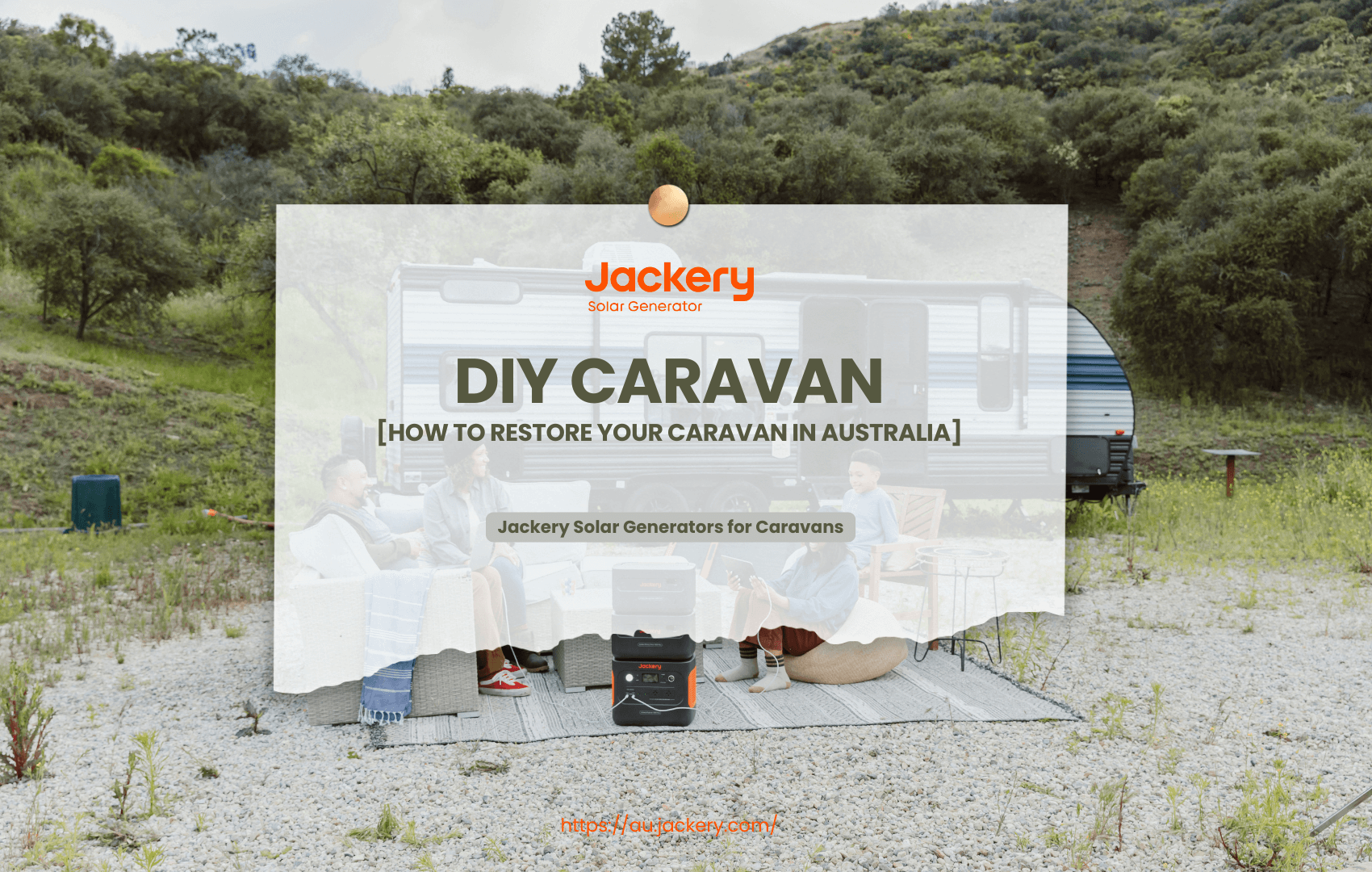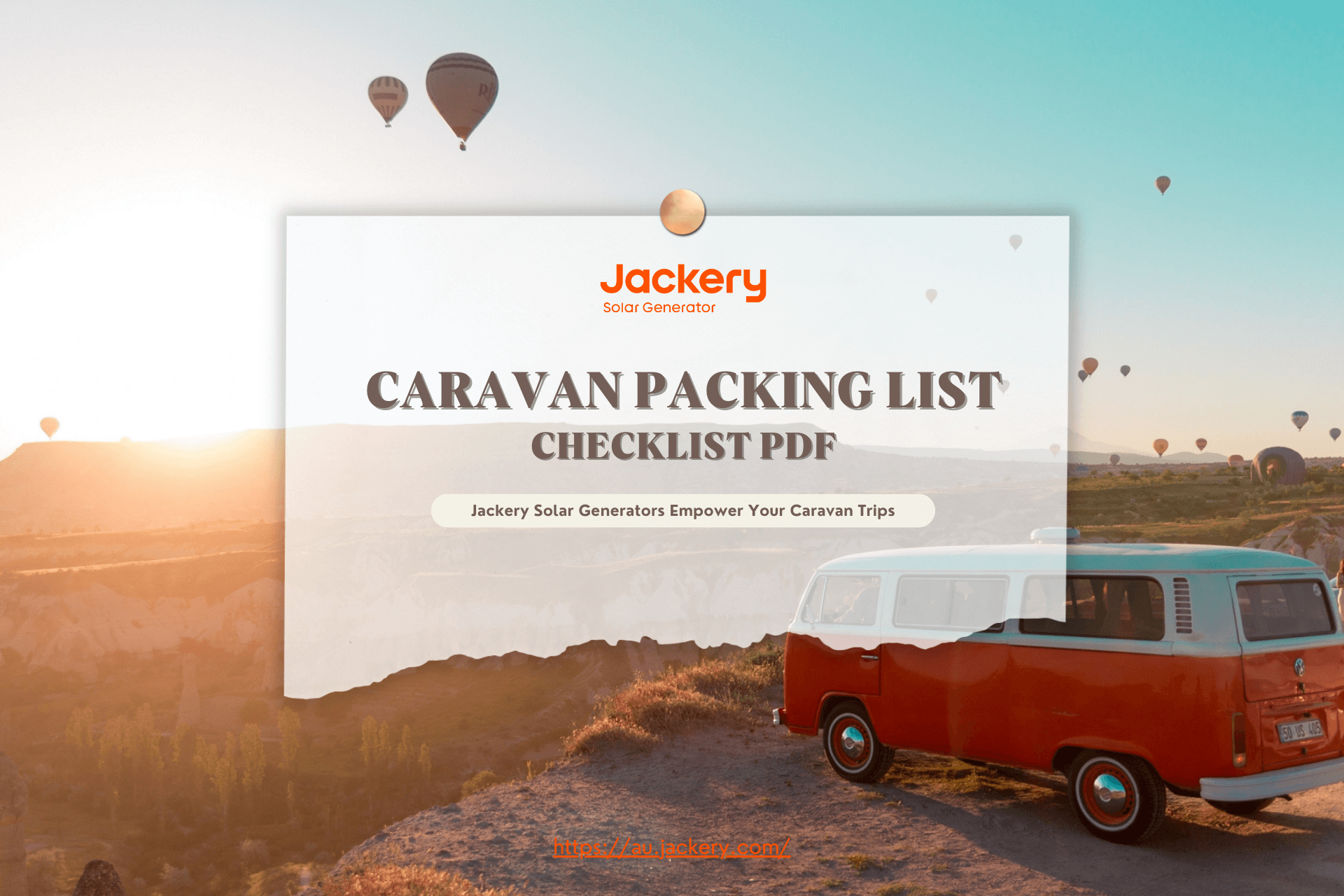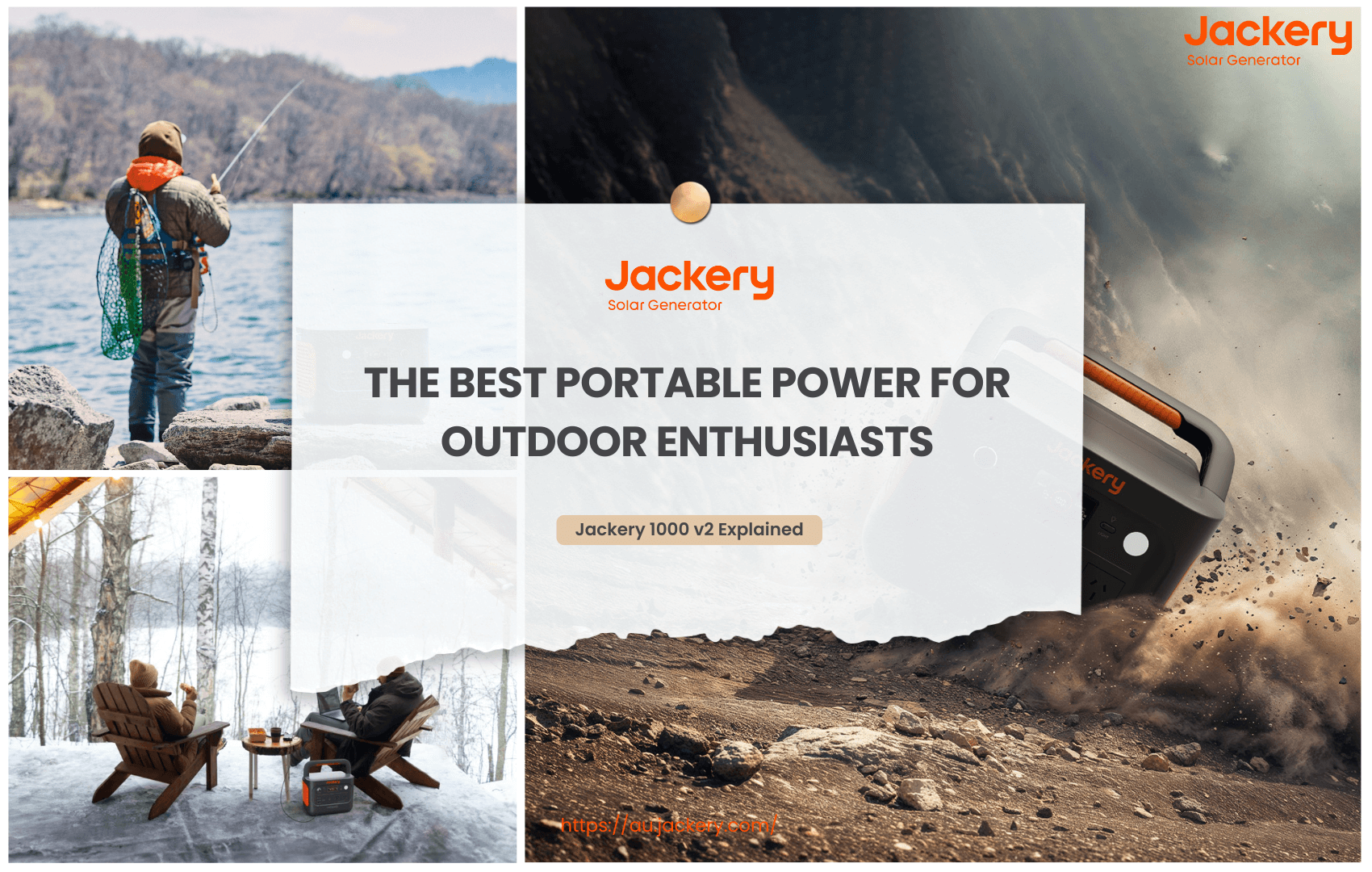|
Key Takeaways: |
|
- A hybrid caravan combines the features of a camper trailer with a standard caravan, providing off-road capability with additional comfort. - Pop-tops or inflatable sections are frequently used in hybrid caravans to maximise internal camping capacity. - Hybrid caravans are more fuel-efficient than full-size caravans since they are lighter. - Even with their convenience, hybrids could still need to be manually set up for things like awnings or slide-out beds. - Your preferred degree of comfort, travel preferences, and budget all play a role in selecting the ideal hybrid caravan. - We highly recommend Jackery Solar Generator 2000 Plus and 1000 Plus as your caravan power solutions, charging appliances with unlimited solar energy. |
What Is a Hybrid Caravan?
A hybrid caravan is essentially a cross between a camper trailer and a caravan. It combines a camper trailer's suspension and towing capabilities with the advantages of a conventional caravan with a hard exterior shell. It's ideal for anyone who wants the comforts of a caravan combined with the freedom to travel off-road.
Because of this, you will still have all the contemporary conveniences you need for extended days on the road, such as sleeping quarters and integrated kitchen and bathroom amenities. Instead, it merely adopts a lighter and more compact form, which enhances its off-road capabilities. It also frequently has an inflatable portion or built-in pop-top to maximise room when needed.
Why Is It Called Hybrid Caravan?
A hybrid caravan combines the essential elements of a camper trailer with a conventional caravan, hence the term "hybrid." It retains a camper trailer's small size, lighter weight, and off-road mobility while providing a caravan's built-in conveniences, comfort, and hard-shell protection. This combination makes it perfect for off-grid and distant camping without compromising convenience by enabling tourists to experience both comfort and rugged adventure.
Benefits of Hybrid Caravans
Australian adventurers are increasingly choosing hybrid caravans and for a good cause. They are a multipurpose solution that combines the greatest aspects of camper trailers and conventional caravans. A hybrid caravan provides a valuable and cozy travel option, whether you're going off-road into the woods or camping at a coastal vacation resort.
Hybrids are perfect for couples, families, and lone travellers seeking flexibility, usability, and off-grid possibilities because they are more convenient than basic camper trailers and have a more compact design than full-sized caravans.
Off-Road Aptitude: Although hybrid caravans are opulent, their ability to travel off-road is their biggest asset. The best hybrid caravans will have heavy-duty brakes, coil springs, and dual shock absorbers installed. After all, what could be better than venturing off the main path to places others might not have seen? Both worlds are best combined. Being able to explore without the discomfort that other options can offer.
Adaptability to Various Terrains: Hybrid caravans are able to travel on smooth highways because of their superior suspension systems. After going off the beaten route, hybrid caravans may then go on rocky paths where they can experience adventure. You can embrace your inner adrenaline seeker wherever you go, from the coast's beaches to the country's outback.
Ease of Towing: The ability to tow is one of the main reasons hybrid caravans are referred to as such. The towing features of a hybrid are borrowed from camper trailers. You will probably have independent trailing arm suspension with a hybrid camper trailer, making manoeuvring and towing a breeze. One major advantage of a hybrid is that it does not require an extensive four-wheel drive system to pull.
Fuel Efficiency: As one may anticipate, they consume much less fuel than heavier caravans due to their lighter construction. Because of their less weight, your towing car is not subjected to as much strain, so you won't have to stop at the gas station as frequently, saving you money.
Features: With so many fantastic features, hybrid caravans can become your preferred over standard camper trailers. Hot water, kitchens, solar electricity, showers, toilets, and air conditioning are all easily combined in a fantastic hybrid trailer.
This just makes camping and travelling more comfortable. While not all caravan manufacturers have decided to incorporate all of these features into their hybrid camper trailers, many do. It should be noted that a hybrid caravan's overall weight increases with the number of facilities it offers. Most hybrids are significantly more weatherproof than a typical caravan or camper because of their hard roof and walls.
Compact Storage Options: Make sure you have enough room to keep everything you'll need before you hit the road. Packaging everything you'll need for your vacation is simple, thanks to its expanded sections and pop-top lid. When you're ready to plan your next trip, you can store it in its compact form.
Insulation: A hybrid, which borrows the complex roofs and walls from caravans, is insulated in contrast to regular campers. This implies that you can benefit from air conditioning in warmer weather as well as maintaining your body temperature in colder climates. The whole family will love you even more due to this huge advantage.

Disadvantages of Hybrid Caravans
From space limitations to ongoing maintenance needs, hybrid caravans balance comfort and off-road capability. Still, like any travel setup, they have drawbacks that may not suit every traveller. Understanding the potential disadvantages can help you choose the right van for your lifestyle and avoid surprises on the road.
Higher Purchase Cost: Although hybrid caravans can occasionally match the price of smaller full-size caravans, they are often more costly than conventional camper trailers. This is mostly because of its sturdy construction, off-road prowess, and the addition of amenities like solar power systems, interior kitchens, and bathrooms. The initial outlay might majorly influence budget-conscious customers, particularly when considering optional extras or customisations.
Limited Interior Space: While hybrids are more comfortable than camper trailers, they still offer less internal space than full-sized caravans. The compact layout can feel cramped, particularly on longer trips or when travelling with multiple people. Storage is also limited inside the van, which means you’ll need to be efficient with packing or rely on external storage compartments.
Still Require Setup: Despite being easier to assemble than conventional camper trailers, many hybrid caravan models still require some manual labour. Awnings, slide-out kitchens, fold-out beds, and pop-up roofs must all be used when camping. When you arrive late to a campground or in inclement weather, this can be problematic, particularly if you want to set up and take down quickly.
Weight and Towing Demands: Due to their greater weight than camper trailers, hybrid caravans need a suitable tow vehicle, usually a 4WD with a respectable towing capacity. Depending on the model and the items you pack, you can easily get close to or beyond the legal towing restrictions. Comprehending your car's Gross Combination Mass (GCM), Aggregate Trailer Mass (ATM), and additional weight specifications is crucial for safe towing.
Key Differences Between Hybrid Caravans & Other RVs
As a result of their ability to combine the space-saving characteristics of camper trailers with the conveniences of full-size caravans, hybrid caravans provide travellers with a distinctive alternative. Here is how hybrid caravans compare to conventional recreational vehicles:

Size and Towing
A greater variety of cars can tow and handle hybrid caravans because they are often lighter and smaller than conventional RVs. In order to minimise overall size during transportation, several hybrid vehicles have fold-out sleeping spaces or pop-top roofs.
Because of their smaller size, they can travel off-road and via narrower paths more readily than larger caravans. However, full-size caravans are usually heavier and roomier, which means they have more space inside but need more powerful vehicles to tow and are less suitable for rough terrain.
Living Space and Amenities
Although hybrid caravans include all the amenities needed for camping, they frequently emphasise striking a balance between indoor and outdoor living. Many hybrids have limited inside space, slide-out beds, and outdoor kitchens. This arrangement offers cover and practicality while promoting an outdoor lifestyle.
On the other hand, traditional caravans typically have larger interiors with amenities like internal kitchens, completely enclosed bathrooms, and permanent bedding arrangements. They are more appropriate for people who value interior comfort and ease.
Off-Road Capability
The capacity of hybrid caravans to go off-road is one of their best qualities. With their sturdy suspension systems, increased ground clearance, and reinforced chassis, hybrid vehicles are well-suited to challenging terrain and far-off locations. They are, therefore, perfect for daring tourists who want to visit remote areas.
In contrast, traditional caravans typically lack the structural durability required for severe off-road driving because they are designed for sealed roads and designated campgrounds.
Cost and Maintenance
Generally speaking, hybrid caravans are less expensive than full-size motorhomes and even some large caravans. They also typically have cheaper maintenance expenses because they lack an engine and other mechanical components. Customers seeking value and less maintenance will find this simplicity appealing.
Motorhomes, on the other hand, combine living space with a vehicle, which raises the initial cost of purchase as well as the complexity and expense of maintenance and repairs.
Camping Experience
Campers who prefer a closer relationship with nature are frequently drawn to hybrid vehicles. They provide a more open, airy feel that draws you closer to the outdoors with amenities like canvas slide-outs and outdoor living areas. This arrangement improves ventilation and makes camping more engaging.
Conventional caravans, on the other hand, are more enclosed and offer more protection against noise and weather. For individuals who want a completely enclosed arrangement or are travelling in harsh weather, they provide a more climate-controlled atmosphere, which can be a top consideration.
Setup and Storage
A hybrid caravan usually requires more time to set up because many of the models have expandable parts that must be unfurled and positioned, such as beds and kitchens. When not in use, they are simpler to store in garages or tiny driveways due to their modest size.
Since traditional caravans are entirely self-contained, they may be set up more quickly, but because of their bigger size, they can be more challenging to store and move in confined areas.
|
|
Hybrid Caravan |
Full-Size Caravan |
Camper Trailer |
|
Size & Layout |
- Compact units - Combine features of both caravans and camper trailers - Include pop-up roofs or slide-out sections. |
- Larger and more spacious. - Include full-height ceilings and extensive interior layouts. |
- The most compact. - Rely heavily on external setups like annexes and awnings. - Offer an open-air camping experience. |
|
Off-Road Capability |
- Designed with off-road adventures in mind. - Feature robust suspension systems, higher ground clearance, and durable chassis. - Suitable for rugged terrains. |
- Best suited for sealed roads and established caravan parks. - Limited maneuverability on rough tracks. |
- Highly capable off-road |
|
Towing & Maneuver Ability |
- Easier to tow than full-size caravans. - Align with the width of a typical 4WD, aiding in maneuverability. |
- Require more powerful tow vehicles and careful handling, especially when reversing or navigating tight spaces. |
- The easiest to tow and maneuver, even with smaller vehicles. - Ideal for those new to towing. |
|
Comfort & Amenities |
- Provide a mid-range comfort level. - Feature internal beds and sometimes bathrooms, with kitchens typically located outside. |
- Offer the highest level of comfort. - Feature spacious interiors, full kitchens, bathrooms, and climate control systems. - Ideal for extended stays. |
- Focus on outdoor living with basic amenities. - Include outdoor kitchens and sleeping areas. - Lack the enclosed comfort of caravans. |
|
Cost |
- Priced between camper trailers and full-size caravans. |
- Generally, the most expensive option. |
- Typically the most budget-friendly. |
|
Ideal User Profiles |
- Suitable for couples or small families. - Seeking a mix of comfort and off-road capability. |
- Best for families or travellers. - Looking for comfort and space, mainly on sealed roads. |
- Ideal for adventurers. - Enjoy a more traditional camping experience. - Have vehicles with lower towing capacities |
Your preferred comfort level, vacation destinations, and travel style will all influence your choice. Hybrid caravans provide a well-rounded approach by fusing necessary comforts with off-road capability. While camper trailers offer affordability and ease of use for individuals who enjoy the outdoors, full-size caravans provide the highest comfort level for extended visits.

Jackery Solar Generators for Hybrid Caravans
Hybrid caravans are designed to venture away from traditional caravan parks with main power hookups. A solar generator provides the essential electricity needed to power appliances, lights, and devices when you're truly off-grid, extending your stay in remote and scenic locations.
You become less dependent on powered sites, offering greater flexibility in choosing your camping spots and potentially saving on campsite fees.
Unlike noisy and fume-emitting petrol or diesel generators, solar generators operate silently and produce no exhaust. This allows you to fully immerse yourself in the natural environment without disturbing the peace or polluting the air. Using solar power aligns with a more sustainable travel approach, reducing your carbon footprint while exploring Australia's beautiful landscapes.
We highly recommend the Jackery Solar Generator, which combines Jackery Solar Panels with a Portable Power Station to exploit solar energy fully.
Jackery Solar Generator 2000 Plus
The Jackery Solar Generator 2000 Plus is the ideal way to back up your caravan's power. It gives you more power and more options to charge appliances with expandable capacity. This powerhouse can hold up to five more battery packs and has a 12kWh capacity that can be expanded.
Jackery Solar Generator 2000 Plus combines Explorer 2000 Plus and SolarSaga 200W solar panels. It is easy to use Jackery Solar Generator 2000 Plus; all you need to do is use connectors and cables to connect Jackery SolarSaga 200W solar panels to the Explorer 2000 Plus portable power station.

With an expandable capacity from 2 to 12 kWh, the Jackery Explorer 2000 Plus is suitable for hybrid caravans. It can charge 99% of household appliances and electronics, such as lights, radios, phones, computers, etc. With a 20ms EPS, essential devices such as your refrigerator and blender remain operational instantaneously during your trip.
Recharging Explorer 2000 Plus is easy; it only takes 2.5 hours to fully recharge it, or using wall outlets for 1.7 hours or a carport for 25 hours.
ChargeShield is Jackery's advanced quick charge technology, featuring 62 protective mechanisms, 12 protective algorithms, and four forms of physical safety protection. Manage and oversee your 2000 Plus with the Jackery App. It accommodates various devices, facilitates real-time status monitoring, and offers customisation options and additional features.
Jackery SolarSaga 200W Solar Panel
Jackery solar panels achieve industry-leading solar conversion efficiency of up to 25%, resulting in increased lifetime energy production. Our solar panels generate 50% more energy in low light circumstances compared to standard PERC solar panels and exhibit superior spectrum response. The ETFE-laminated case prolongs its durability, and the suggested angle guarantees optimal sunlight absorption, rendering it an ideal power source for outdoor excursions and home backup.
Jackery Solar Generator 1000 Plus
Learn about the Jackery Solar Generator 1000 Plus's power and versatility, designed to boost your energy independence. Jackery Solar Generator 1000 Plus is the combination of a Jackery SolarSaga 100W or 200W solar panel with an Explorer 1000 Plus. With its robust 1264Wh capacity and impressive 2000W output, this portable generator powers 99% of the equipment in a caravan, simplifying energy use.

Its extensible design allows you to add up to three more battery packs, boosting its capacity to an amazing 5kWh, which is enough to run your caravan for one to three days.
Recharging Explorer 1000 Plus is also easy. You can recharge a SolarSaga 100W in 18 hours or a SolarSaga 200W for 9 hours. You can also recharge it by wall outlets (1.7 hours) and carport (14.5 hours). With 4,000 charge cycles and a solid 10-year lifespan, its LiFePO4 battery cells offer longevity.
Take charge with the Jackery App, which customises WiFi or Bluetooth and monitors real-time. As you embrace sustainable energy solutions, you can feel secure knowing that the Jackery 1000 Plus is small, effective, and long-lasting, and it comes with a 3+2 year warranty.
Jackery SolarSaga 100W Solar Panel
Jackery SolarSaga 100W Solar Panel: transform solar energy into renewable power with this monocrystalline solar blanket! Boasting a solar conversion efficiency of 23.7%, it is optimally designed for outdoor endeavours and unforeseen power disruptions. The ETFE-laminated casing prolongs the solar panel's lifespan and weighs 4.69 kg. It is lightweight, foldable, IP65 waterproof, and convenient for transport for off-grid excursions.
What to Consider When Choosing a Hybrid Caravan?
To ensure a hybrid caravan fits your travel requirements and lifestyle, it's important to consider several variables before purchasing. Here is a thorough resource to help you make an informed choice:

Towing Capacity & Off-Road Compatibility
Verify that your automobile can safely pull a hybrid caravan before purchasing. Compare the weight of the caravan—including the weight of the tow ball and the overall mass of the loaded cargo—with the towing capacity of your car.
Choose a hybrid with a sturdy build if you intend to travel to isolated or difficult terrain; seek off-road features like stone guards and high ground clearance, as well as a strengthened chassis and all-terrain suspension.
Layout
Consider your intended usage of the area. While some hybrids emphasise exterior setups, others have small internal kitchens and bathrooms. Consider how comfortable the layout is for your needs, the seating arrangement, the bed configuration, and interior access to important features (such as the refrigerator). Additionally, determine whether you are content with sleeping areas made of canvas or if you would rather have enclosed entirely solid walls for privacy and insulation.
Setup, Storage & Practicality
Setup time is frequently necessary for hybrid caravans, particularly if they have pop-tops or slide-outs. Check to see if the setup is simple and if it fits your travel schedule, particularly if you plan to switch camps regularly. Although their smaller footprint usually makes storing at home easier, be sure the length and height of the packed-down item match the space you have available.
Off-Grid Capability
Consider how self-sufficient the caravan is if you're going off the grid. Solar panels, battery capacity, inverter systems, gas supply, and water storage are important elements. Think about how much time you intend to spend off the grid because some hybrids are better suited for longer stays away from powered locations than others.
Budget & Quality
Since prices vary greatly, make sure your budget strikes a balance between quality and your needs. You will get superior long-term service from a well-built hybrid with sturdy fittings, decent suspension, and resilience to weather. Make sure you're purchasing from a reliable manufacturer by researching the brand's reputation, customer feedback, warranty details, and after-sales assistance.
Hybrid Caravans FAQs
The following are the frequently asked questions about hybrid caravans in Australia.
1. What is the difference between a hybrid caravan and a normal caravan?
Generally speaking, hybrid caravans are smaller than regular caravans and have a hard, fixed body with pop-out or fold-down pieces to increase living space. They are perfect for adventurous travel in various settings because they are made to be strong and appropriate for harsh terrain travel.
2. Why are caravans called hybrids?
A common definition of a hybrid caravan is a cross between a camper trailer and a caravan. The main distinction is that hybrid caravans use their camper trailer's suspension and towing capabilities while removing the hard, permanent walls from their caravan side.
3. What are the benefits of a hybrid camper?
A hybrid camper has many advantages that appeal to both experienced and first-time travellers. Its tiny, lightweight form makes it easier to tow and more fuel-efficient, but it still has sleeping quarters, a kitchen, and sometimes an internal bathroom.
Off-road hybrid campers with tough suspension and higher ground clearance let you confidently explore remote or unsealed areas. They also boast short setup times and efficient space use, integrating indoor and outdoor living for different camping styles. Hybrid campers are practical and flexible for comfort, convenience, and adventure.
4. Do hybrid campers have air conditioning?
Diesel heaters and diesel-powered hot water, portable fans, and air conditioners that need a generator or a solar and battery setup are common choices for hybrid campers.
5. What is the most reliable make of caravan?
JB, Jayco, Lotus, and New Age caravans are well-trusted in Australia due to their high quality and appropriateness for Australian circumstances. JB Caravans' off-road models with sturdy chassis and premium finishes are popular for distant travel. Jayco, one of the nation's largest and most trusted brands, offers a wide choice of models with great nationwide support and resale value.
Luxury interiors and off-road capability make Lotus Caravans popular with serious adventurers. Walkinshaw Automotive Group-backed New Age Caravans include creative designs and sophisticated features. These reliable brands offer warranty support and satisfy customers, making them good choices for Australian travellers.
Final Thoughts
A hybrid caravan is more than simply a vehicle; it's a travel option that strikes the ideal blend of adventure and comfort. Whether you're heading deep into the bush or spending the weekend by the shore, a hybrid has the off-road toughness and practical features to make any journey fun. With smart design, enhanced mobility, and modern amenities, it's no surprise that hybrid caravans are swiftly becoming a popular choice among Australian visitors.

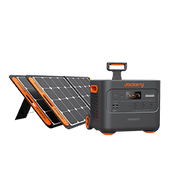
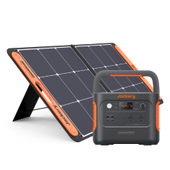
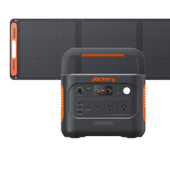
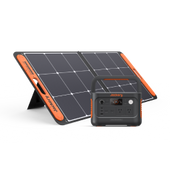
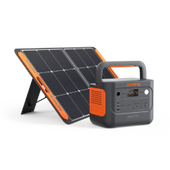

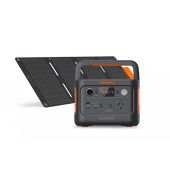
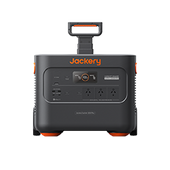
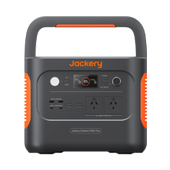
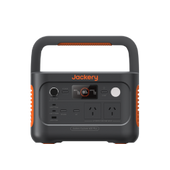
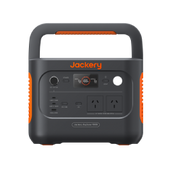
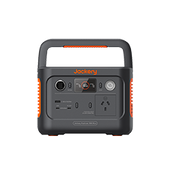
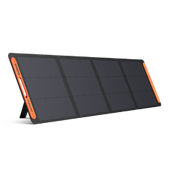
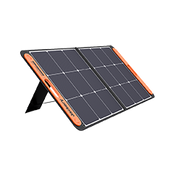
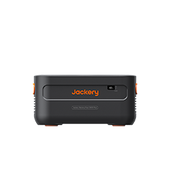
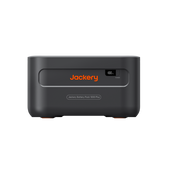
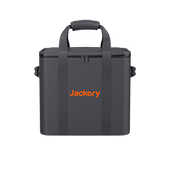
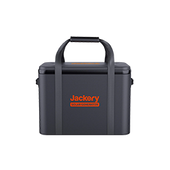
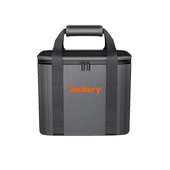

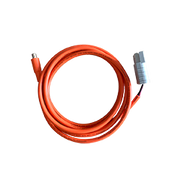
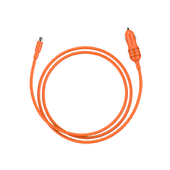
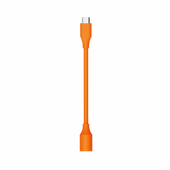
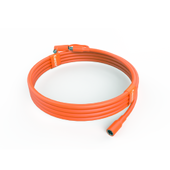


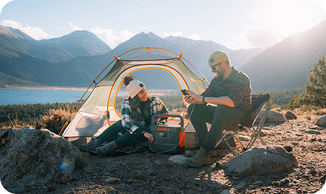
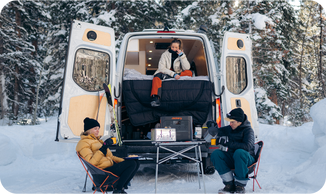
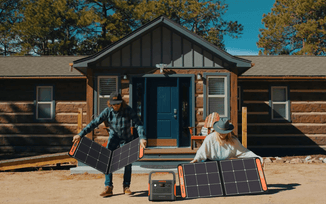
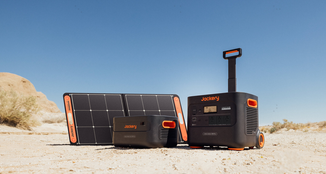
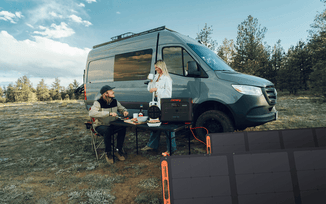
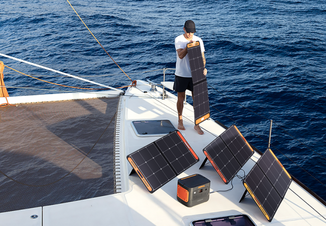

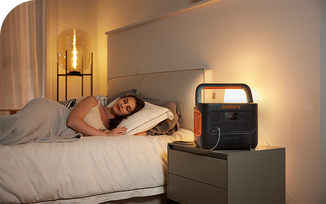
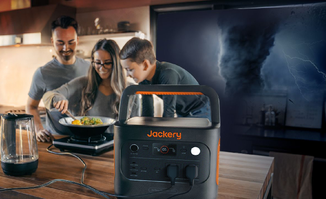
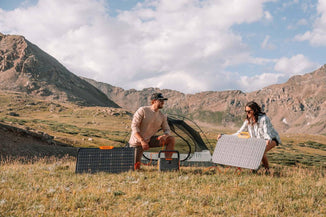
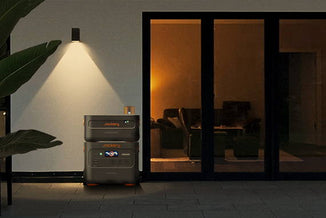
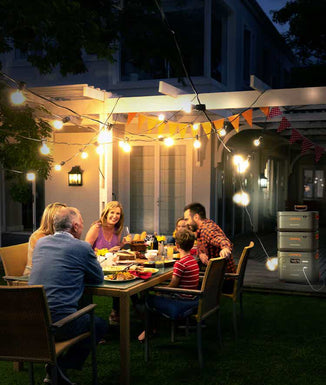
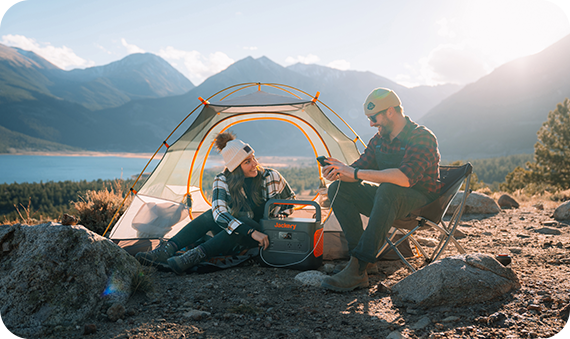
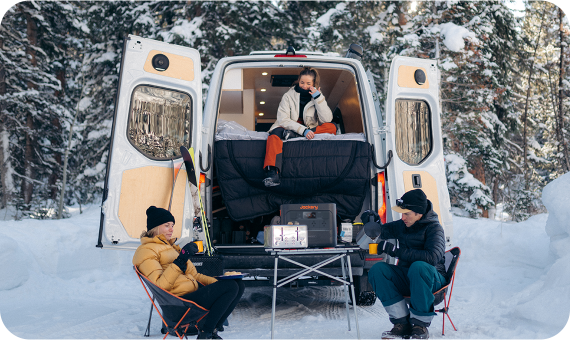
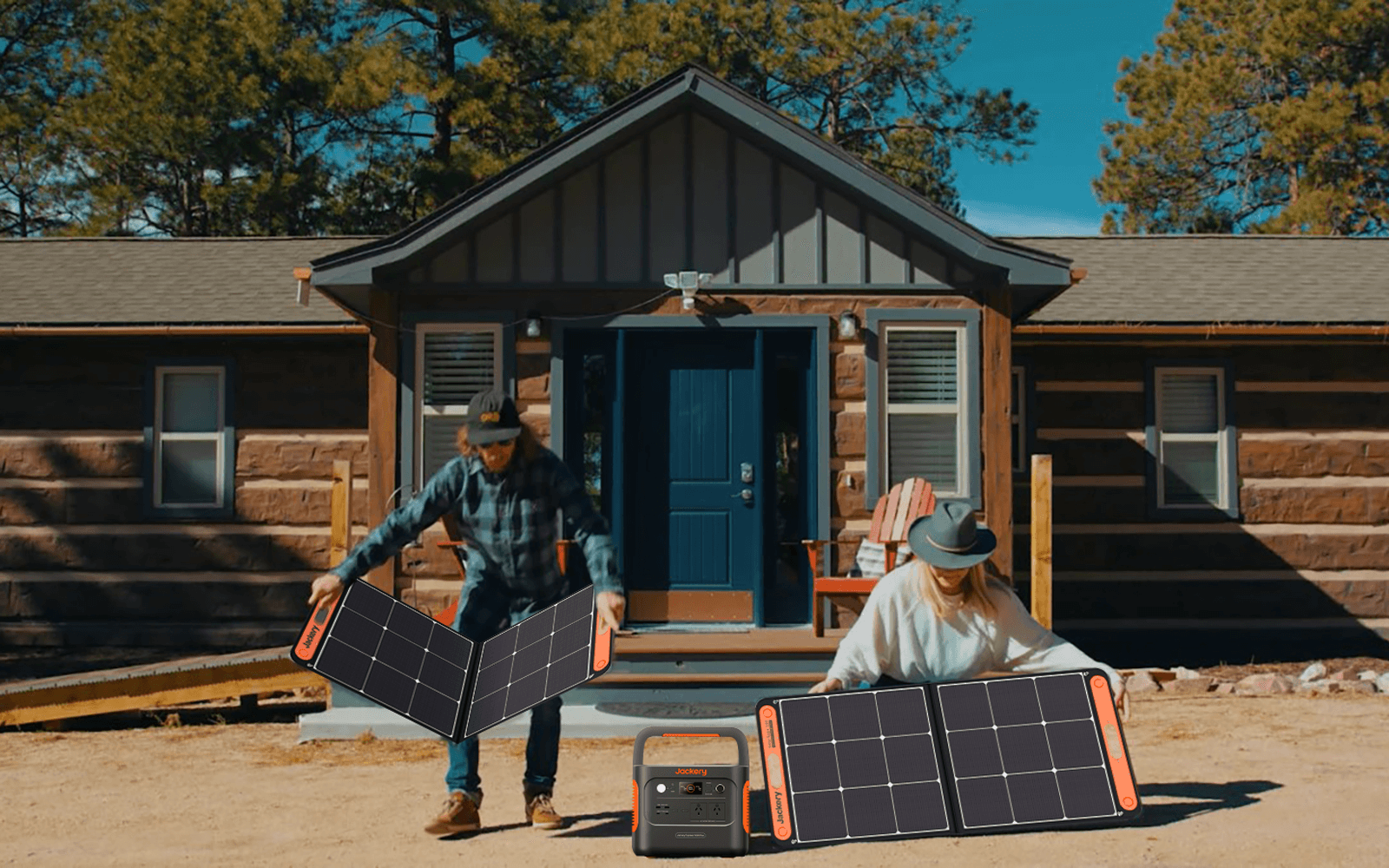
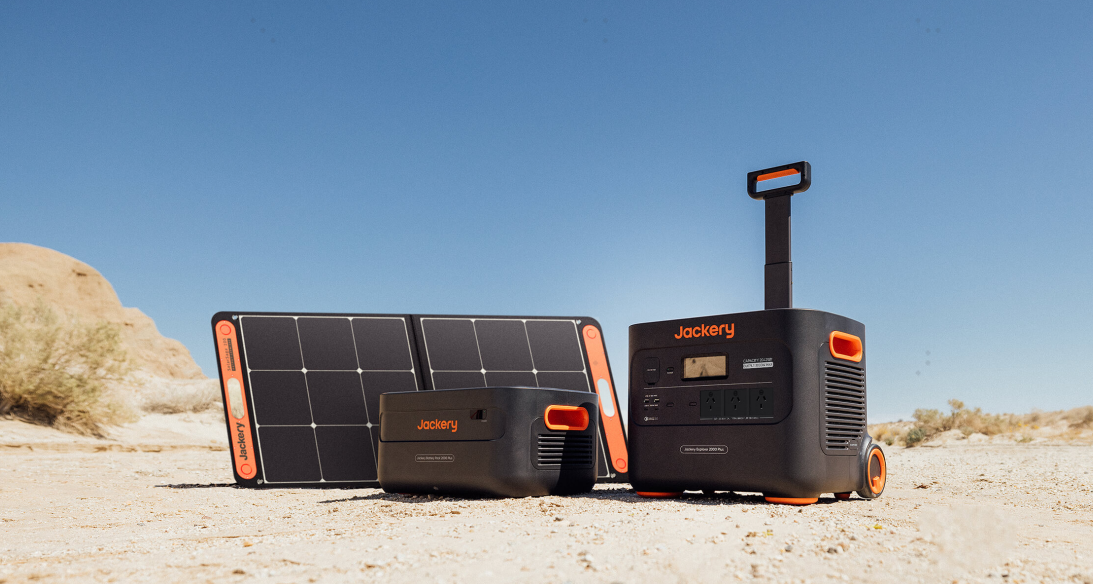
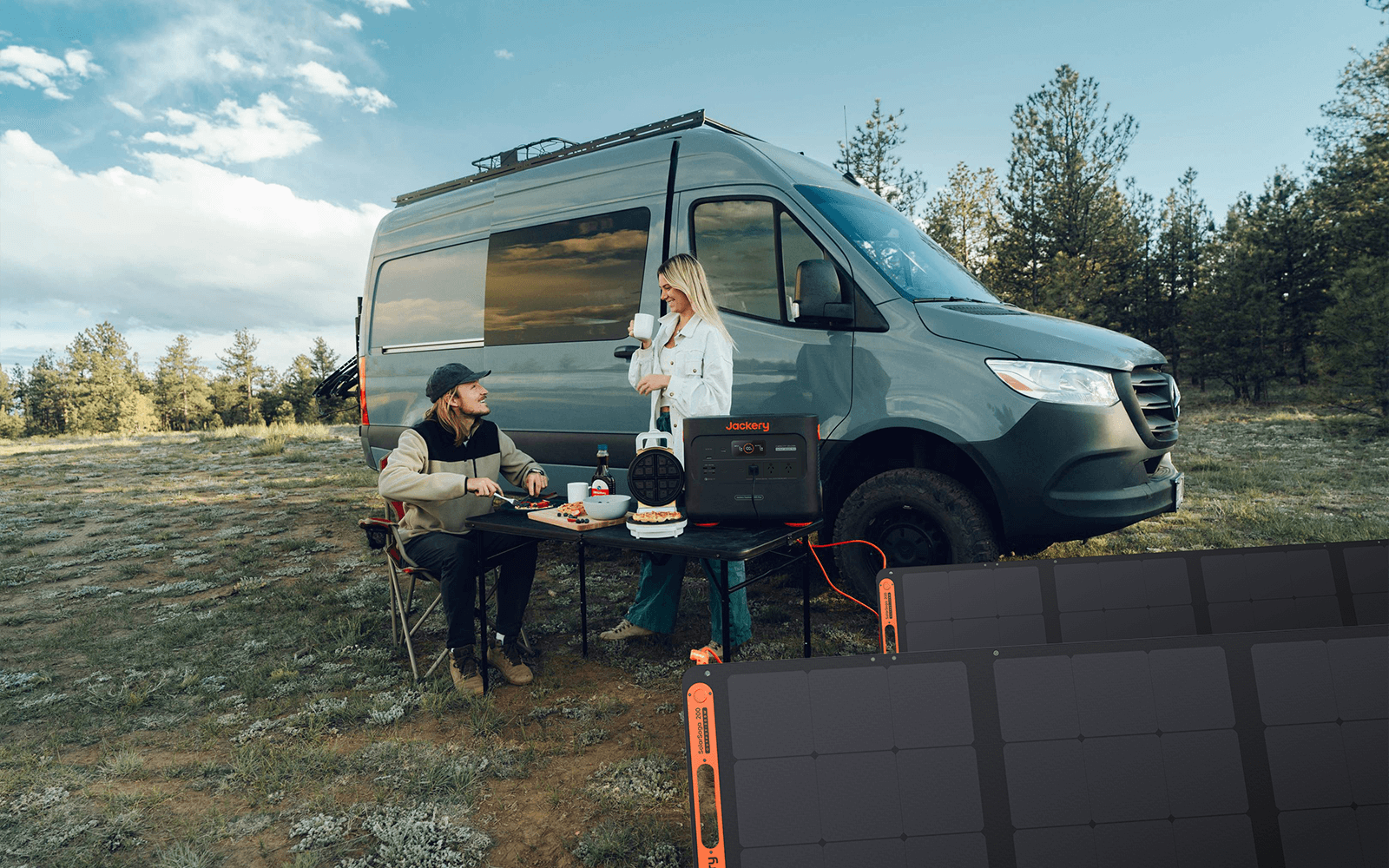
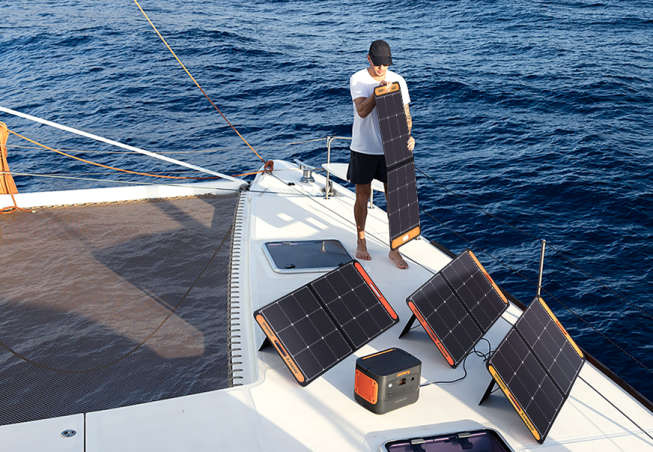
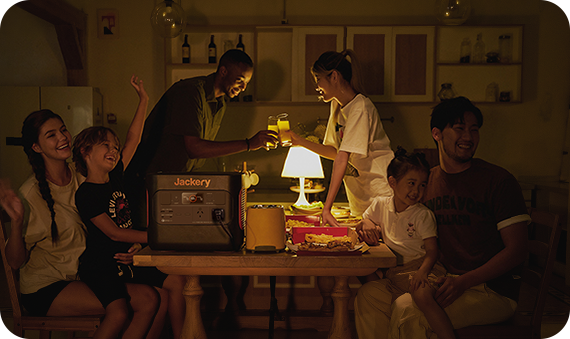
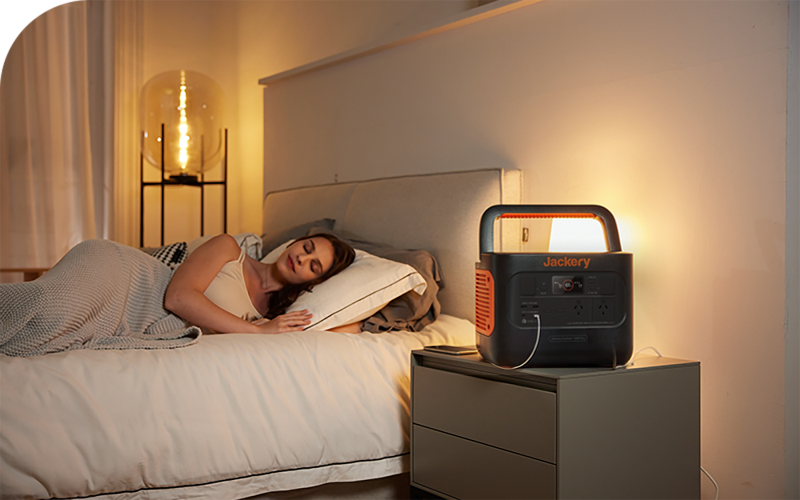
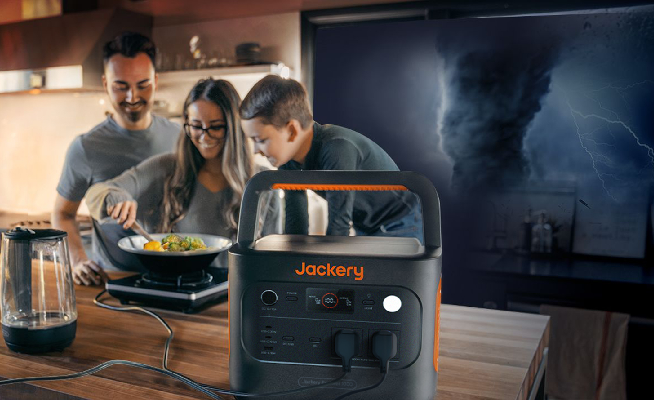
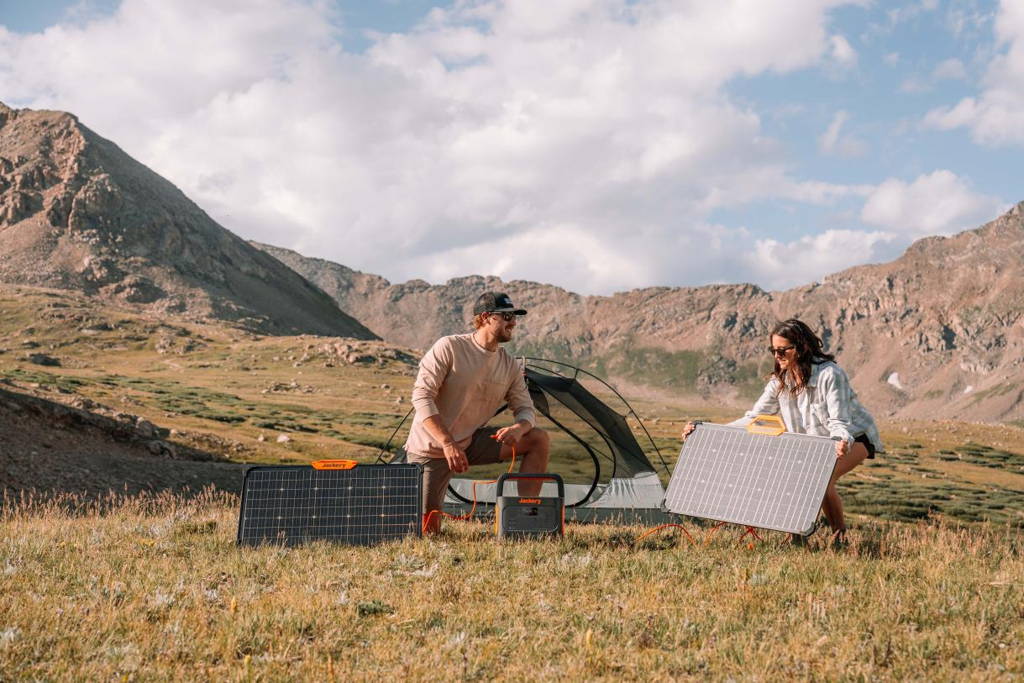
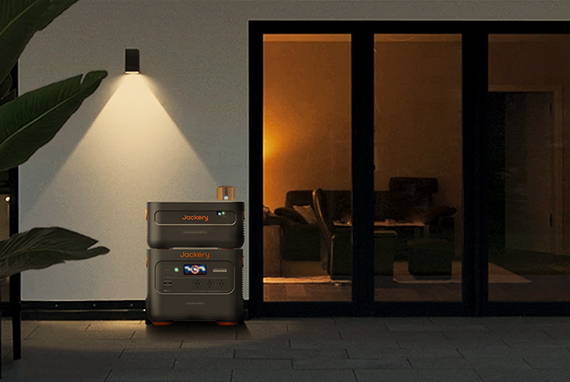
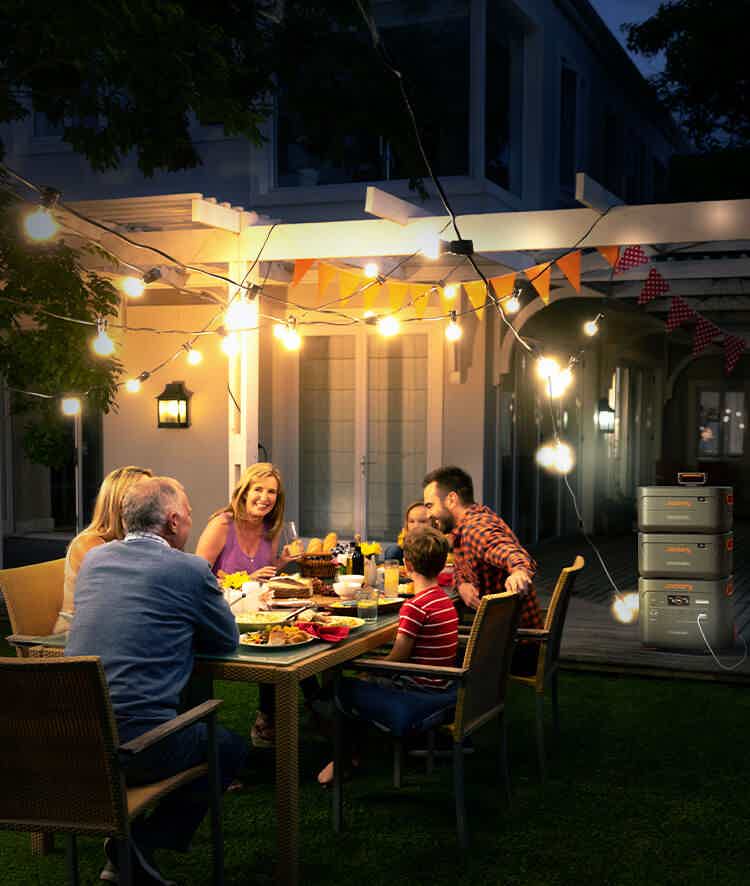
![What Is a Hybrid Caravan [Complete Guide]](http://au.jackery.com/cdn/shop/articles/what_is_hybrid_caravan_guide_478f648e-41bd-4e75-bb10-9e74c48117c8.png?v=1745560411)




